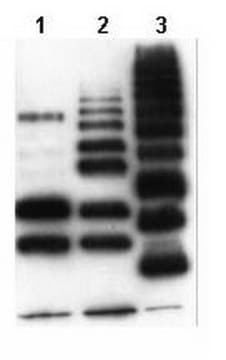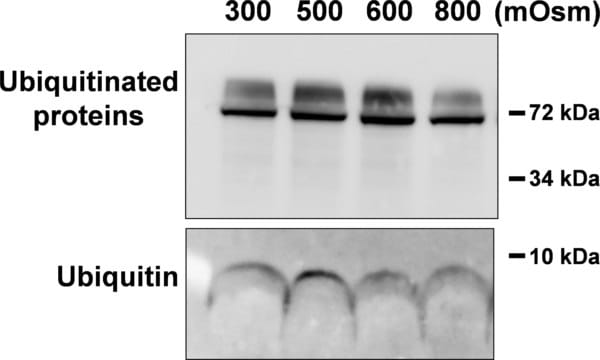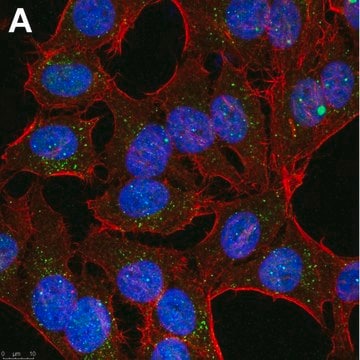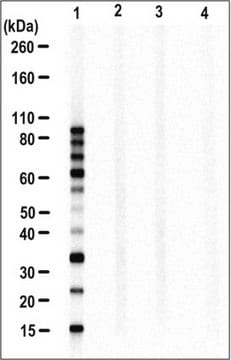ST1200
Anti-Ubiquitin Mouse mAb (FK2)
liquid, clone FK2, Calbiochem®
Sinónimos:
Mouse Anti-Ubiquitin, Ubiquitin Detection Antibody
About This Item
Productos recomendados
biological source
mouse
Quality Level
antibody form
unpurified
antibody product type
primary antibodies
clone
FK2, monoclonal
form
liquid
contains
≤0.1% sodium azide as preservative
species reactivity (predicted by homology)
all
manufacturer/tradename
Calbiochem®
storage condition
OK to freeze
avoid repeated freeze/thaw cycles
isotype
IgG1
shipped in
wet ice
storage temp.
−20°C
target post-translational modification
unmodified
Categorías relacionadas
General description
Immunogen
Application

ELISA (see application references)
Immunoblotting (1:1000)
Immunoprecipitation (see application references and comments)
Immunofluorescence (see application references)
Packaging
Warning
Physical form
Preparation Note
Reconstitution
Other Notes
Boname, J.N., et al. 2001. Immunity 15, 627.
Campbell, V., et al. 2001. Neuron 32, 1013.
Fujimuro, M., et al. 2003. FEBS Letts. 349, 173.
Legal Information
¿No encuentra el producto adecuado?
Pruebe nuestro Herramienta de selección de productos.
Storage Class
12 - Non Combustible Liquids
wgk_germany
WGK 2
flash_point_f
Not applicable
flash_point_c
Not applicable
Certificados de análisis (COA)
Busque Certificados de análisis (COA) introduciendo el número de lote del producto. Los números de lote se encuentran en la etiqueta del producto después de las palabras «Lot» o «Batch»
¿Ya tiene este producto?
Encuentre la documentación para los productos que ha comprado recientemente en la Biblioteca de documentos.
Nuestro equipo de científicos tiene experiencia en todas las áreas de investigación: Ciencias de la vida, Ciencia de los materiales, Síntesis química, Cromatografía, Analítica y muchas otras.
Póngase en contacto con el Servicio técnico








